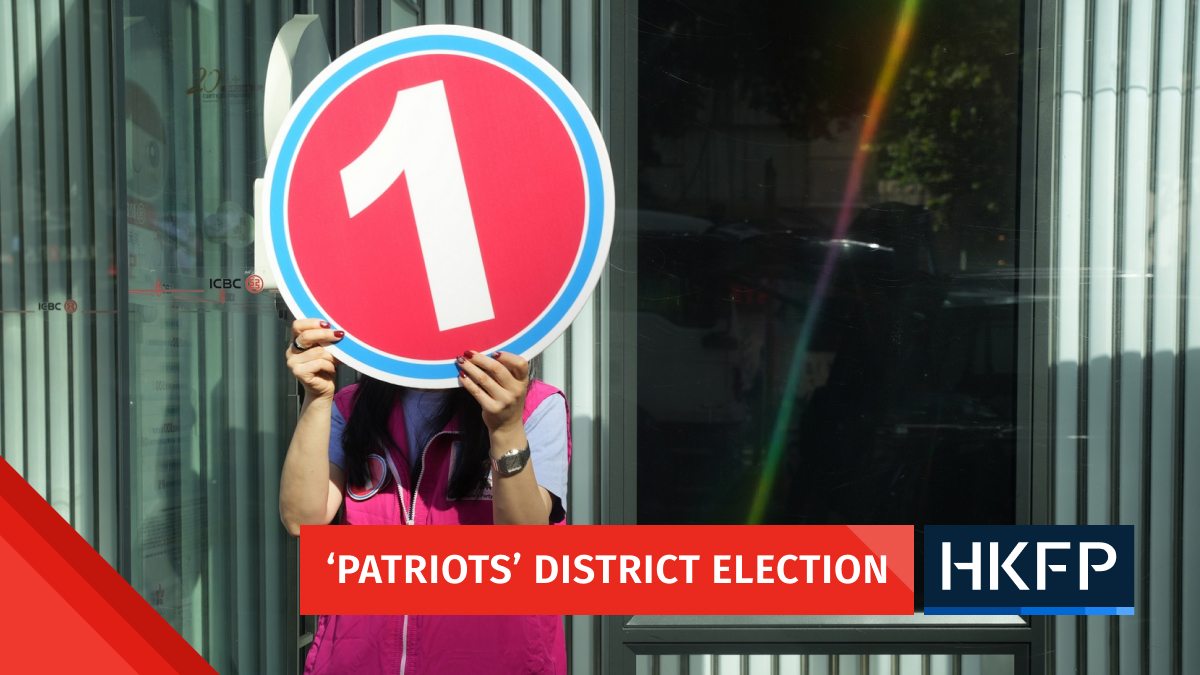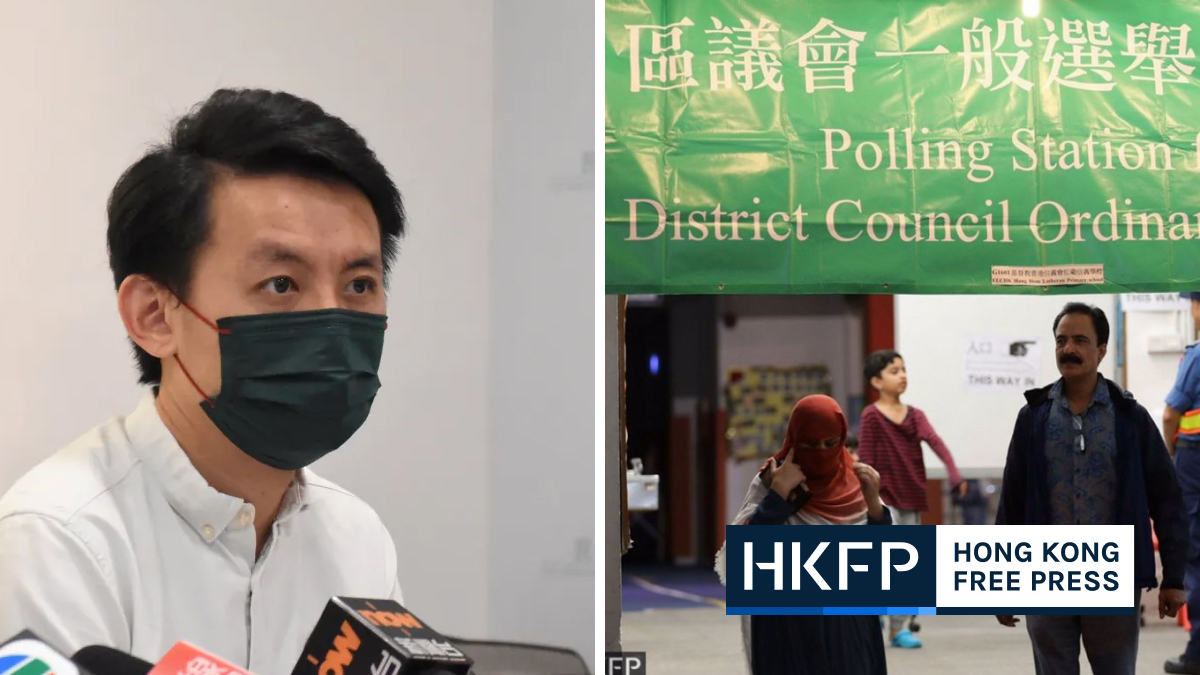Defeated election candidates in Hong Kong’s first “patriots only” polls expressed their disappointment, but said they will continue to serve the city in their own ways.
Results for Sunday’s newly restricted elections were announced on Monday morning, with pro-Beijing and pro-establishment members overwhelmingly sweeping the polls. Just one self-described moderate was elected into the 90-seat legislature.

Most traditional pro-democracy figures remain behind bars, are in self-exile abroad, have quit politics or were barred from running.
“Losing is painful, but I am very thankful to the 5,160 voters who supported me,” Allan Wong, from the non-pro-establishment Path of Democracy party, wrote on Facebook on Monday.

He ran in the New Territories Northeast geographical constituency and lost to two pro-Beijing politicians, DAB incumbent lawmaker Gary Chan and the New People Party’s Dominic Lee.
A member of the Environmental Bureau’s Council for Sustainable Development, Wong said he hoped that he was able to raise awareness of environmental and livelihood issues through his campaign.
Sunday’s race was the first since Beijing’s electoral overhaul in May, which effectively barred members of the opposition from running by introducing a multi-step screening process to ensure hopefuls are “patriotic” enough.

The Hong Kong government said the overhaul would ensure the city’s stability and prosperity. But the changes also prompted international condemnation, as it makes it near-impossible for pro-democracy candidates to stand.
Unexpected defeat
Felix Chung, who was defeated in the textiles and garment functional constituency, said he and his team were taken aback by the loss. The industry veteran, and head of the pro-Beijing party Liberal Party, has represented the sector as a Legislative Council lawmaker since 2012.
The possibility of losing had crossed Chung’s mind, he told Commercial Radio in a Tuesday morning segment. But he did not think the “chances were high” because his sole competitor is not well-known in the textiles industry.

He said Beijing’s revamp of the electoral system played a major part in his defeat. Aside from broadly reducing democratic representation, the overhaul also involved changes to the functional constituencies race.
Functional constituencies consist of professional or special interest groups, such as commerce, industrial, accountancy or education.
This year, for the textiles sector, only companies and organisations within the industry – no individuals electors – had a vote in the polls. The change, Chung claimed, cost him his victory.
At a press conference on Monday, a reporter asked Chung whether his loss meant that the business-friendly Liberal Party did not have Beijing’s support. Chung said that was not the case, otherwise no candidates from the party would have been elected.
“Well, you can take it as that I don’t have Beijing’s support then,” he said when the reporter followed up.
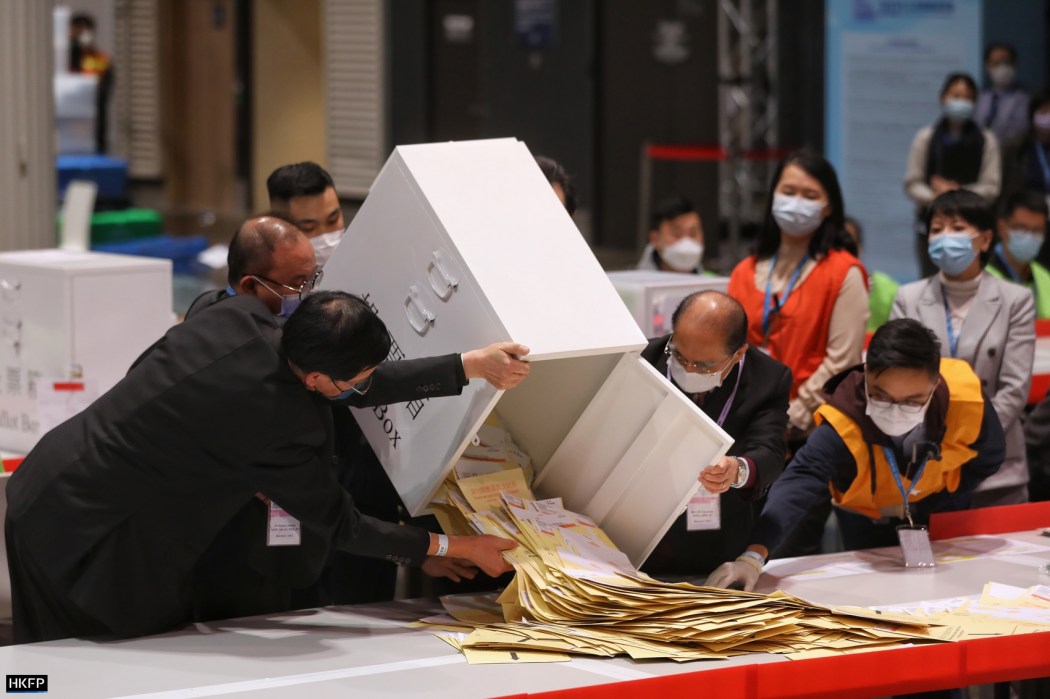
Another candidate in the functional constituencies race, Scarlett Pong, thanked her supporters in a Facebook post.
Pong contested in the medical and health sector. With five candidates vying for one seat, the sector – together with the education constituency – had the highest number of election hopefuls.
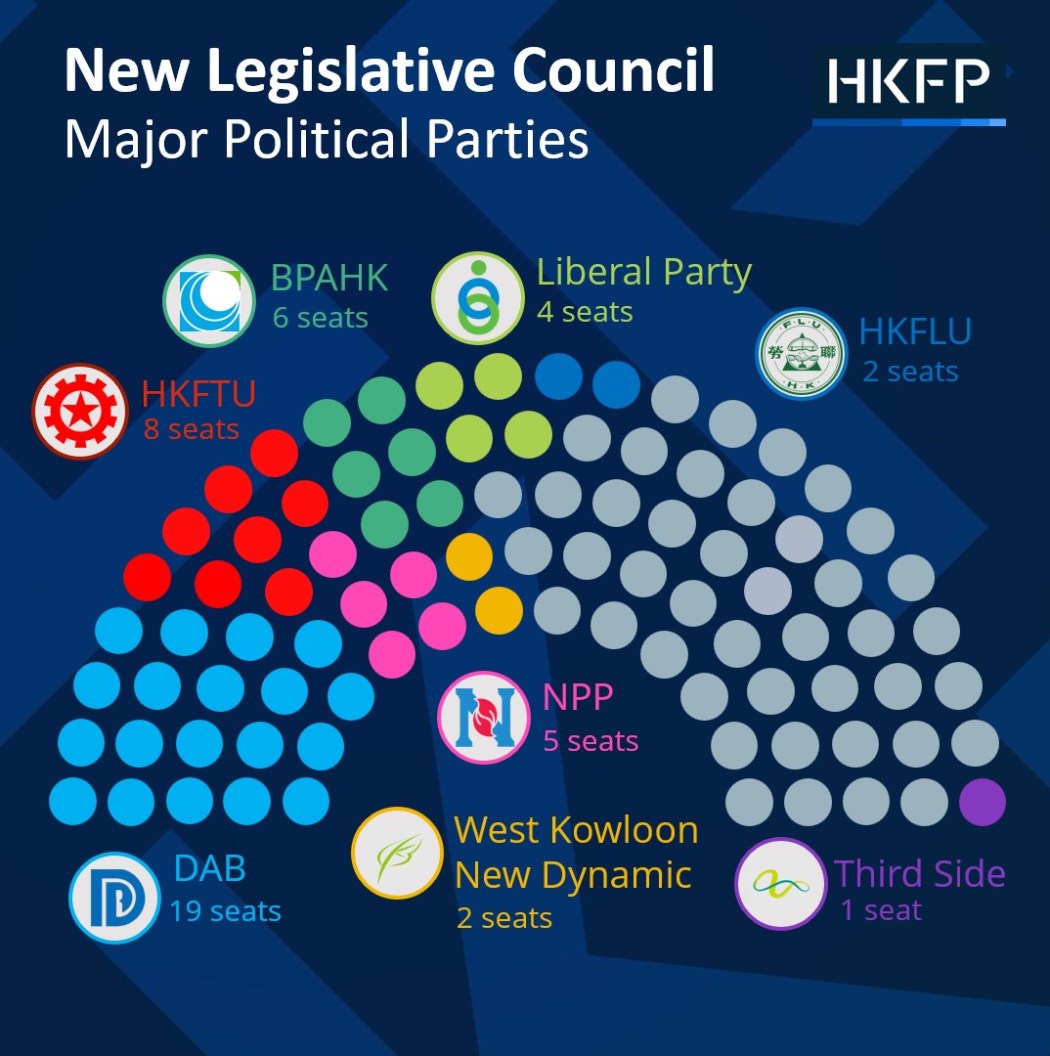
“I will continue to serve the sector and society, because this to me is extremely meaningful,” Pong wrote.
No such thing as ‘Beijing’s blessing’
Fifty-one candidates ran for 40 legislative seats selected via the Election Committee, which is made up of almost 1,500 pro-Beijing elites. Among the 11 hopefuls not elected was Andrew Fung, who formerly served as an Information Coordinator at the Chief Executive’s office.
When a reporter asked if his defeat was because he did not have “Beijing’s blessing,” Fung said that there had “never been such a thing.”

He added that he was “very patriotic,” but that the Election Committee may not have understood his ideals.
Also defeated in the Election Committee were former director-general of InvestHK Mike Rowse and Lan Kwai Fong group founder Allan Zeman, the only two non-ethnic Chinese candidates in the race.

Both expressed disappointment in their defeat, and Zeman pointed to a potential language barrier. “[I]t’s possible in some of the districts some people didn’t even understand the English [speeches I made] and it’s possible maybe people just decided I wasn’t the right one for the job,” Zeman said, according to RTHK.
Rowse told the broadcaster he was also surprised: “I think the director of the Hong Kong and Macau Affairs Office made some remarks about the diversity of the candidates and I think it was possible he would have liked one of us to have won, but as it turns out, neither of us did.”
Meanwhile, DAB member Joseph Chan – at 25, the youngest election candidate – also did not secure a seat in the Election Committee race.

“There are winners and losers in all elections,” Chan told reporters on Monday. “But there is no win or lose when it comes to serving Hong Kong and China. So, no matter what opportunities there are for me to serve Hong Kong, the city I love dearly, I will grasp them.”
Sunday’s election saw the lowest-ever turnout among the general public, and the highest number of invalid votes cast since the 1997 Handover.
LATEST on the ‘patriots only’ poll
Ex-student leader seeks to challenge Hong Kong election law over inciting blank votes in 2021 ‘patriots-only’ legislative race
Over 90% of Hong Kong’s newly elected district councillors sit on the three committees that decide who runs
Hong Kong Democratic Party endorses 8 candidates for first ‘patriots-only’ district council election
Hong Kong 47: Democrats ‘lacked willpower’ in the past, ex-Hospital Authority union chief tells court
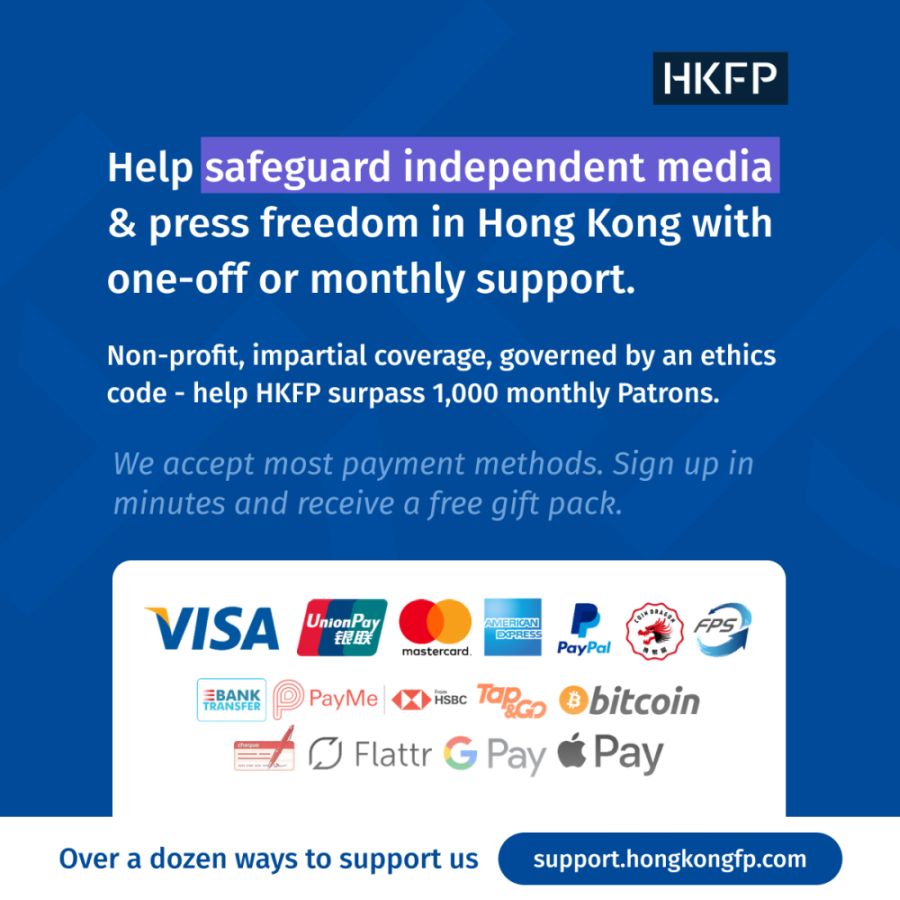
Support press freedom & help us surpass 1,000 monthly Patrons: 100% independent, governed by an ethics code & not-for-profit, Hong Kong Free Press is #PressingOn with impartial, award-winning, frontline coverage.


